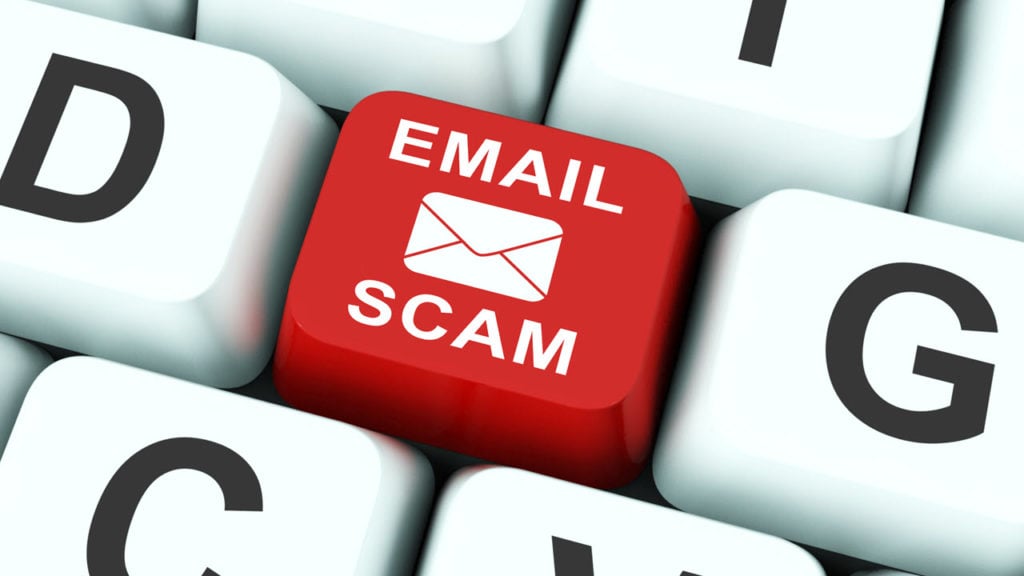Chase fraud alert email scam has been raging for a few years now. In this scam, you will get fake emails from Chase alerting you to potential scams and asking you to log in to your account.
However, when you enter your login ID and password via the link in the email, your credentials will be transferred to the scammers, and they will get access to your account.
In this article, we’ll talk about identifying Chase fraud alert emails and protecting yourself.
How to identify real Chase emails?
Some of the common features of real emails by Chase or other companies are as follows:
- They address you by name or username, not by generic terms like “Dear customer” or “Valued member”.
- As these companies have your account information, they will include the last four digits of your account or card number in the email.
- They will provide a phone number or a link to contact Chase directly without any involvement of a third-party service provider.
- They will not ask for your personal information like password, PIN, social security number, or verification code in the email.
- The tone of the email will be normal rather than threatening or urgent.
- The emails won’t contain typos, grammatical errors, awkward language, missing words, or extra spaces.
How to spot phishing emails?
Some of the common features of phishing emails are:
- They use a fake or spoofed sender address similar to Chase’s official email address, such as chase@securesuite.net or account_onlinebanking@chaseonline.com.
- They use urgent or alarming language, such as “Security Alert”, “Important Notice”, or “Account Problem”.
- The scammers will ask you to click on a link or open an attachment that leads to a fake website or a malware infection.
- They will ask you to verify, update, or confirm your account information by filling out a form or entering a code on a web page or in a reply email.
- They contain spelling, grammar, punctuation, or formatting errors that indicate a lack of professionalism.
Also read: Do the Police investigate Identity Theft?
What to do if you receive a Chase fraud alert email?

If you receive an email that claims to be from Chase and alerts you about a potential fraud on your account, you should:
- Always check the sender’s address and the message content carefully for any signs of phishing.
- Do not click on links or open attachments in the email unless you are sure they are safe and legitimate.
- Do not reply to the email or provide any personal information in the email or on the phone.
- Contact Chase directly using the phone number on the back of your card or on their website to verify the email’s authenticity and report any suspicious activity on your account.
- Call the Customer Protection Group of Chase at 1-888-745-0091. You can also forward the email to phishing@chase.com so that Chase can investigate the matter further.
Also read: Does USPS send text messages? USPS Text scam explained
Types of Chase phishing emails
So, the phishing emails the scammers will ask for your personal information. To do this, they must create a fake scenario with a sense of urgency and immediate attention.
Here are some types of these scenarios that the scammers will send in emails:
- There have been unauthorised changes in your Chase card or account number, and you must log in with our Chase credentials to lock your account. This email immediately sends you into shock and awe, which the scammers want.
- In other emails, the scammers will email you that your Chase account has been temporarily suspended.
- Furthermore, in some emails, the scammers will ask you to update your Chase account.
- The scammers can also send an email where they will say that your credit card has been used for purchasing an item, and if that wasn’t you, you should block it immediately.
Also read: Wells Fargo alert text message scam explained
How to protect yourself from phishing attempts?
If you ever got a phishing email like the Chase fraud alert emails, here are some things that you should consider to protect yourself:
- Use a strong and unique password for your Chase account and change it regularly.
- Activate alerts on your Chase account so that you can receive texts and emails about any unusual transactions or changes on your account.
- Use an antivirus software and update it frequently to protect your device from malware infections.
- Use a spam filter and mark any unwanted or suspicious emails as spam or junk.
- Education is the key to combating such cyber crimes. Educate yourself and others in cyber security and learn to use general security tools and procedures.
Chase fraud alert emails are phishing emails scammers send to extract your personal information. Always check the sender’s address and message content carefully before replying. Also, do not ever provide your personal information to anyone, especially online. If you think you have been scammed, immediately contact Chase and block your account. By following the steps mentioned above in the last section, you can protect yourself from such scams in the future.
Also read: Facebook marketplace scams explained






